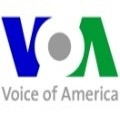In a six-page report, International Atomic Energy Agency (IAEA) director Mohamed ElBaradei bluntly says "Iran has not suspended its enrichment activities". The report sent to the U.N. Security Council Thursday also says the agency has not been able to confirm the nature of Iran's nuclear program because of Tehran's lack of cooperation. It adds that "Iran has resumed enriching small amounts of uranium in recent days". Washington's U.N. Ambassador John Bolton described the IAEA report as a warning signal to the international community about Iran's nuclear intentions. "That's a red flag," said Mr. Bolton. "That says that the Iranian program contains much that should be worried about here in New York and underlies our concern that Iran is pursuing nuclear weapons. There's simply no other explanation for the range of Iranian behavior, which we've seen over the years other than that they're pursuing a weapons capability." The IAEA findings place Iran in clear violation of an earlier Security Council order that set an August 31 deadline for suspending enrichment activities. It also opens the way for the Council to impose sanctions against the Tehran government.
Bolton reiterated the U.S. intention to push ahead with sanctions. But he said the Security Council would not take up the question of possible penalties until after a meeting next week between European Union's foreign policy chief Javier Solana and Iran's top nuclear negotiator Ali Larijani. "There are a range of issues that we've been considering," he added. "I don't think there'll be discussions here until after Javier Solana meets with Mr. Larijani next week in Europe, so we'll see what happens after that meeting, but the United States has been considering this for some time and we've got a lot of thoughts on it." The deputy chief of Iran's nuclear agency, Mohammed Saeedi was quoted Thursday as saying the IAEA report had shown that U.S. allegations about Tehran's nuclear program are, in his words, baseless. In a report carried by Iran's official news agency IRNA, Saeedi said the report had shown that what he called "America's propaganda and politically motivated claims" are based on "hallucinations of U.S. officials". The focus of negotiations on Iran shifts to Europe next week, where U.S. Undersecretary of State Nicholas Burns will meet with other diplomats from Security Council nations and Germany on the sanctions issue. They are also expected to confer with E.U. foreign policy chief Solana before and after his meeting with the Iranian nuclear negotiator Larijani.
French Foreign Minister Philippe Douste-Blazy Thursday signaled the negotiations may be lengthy. He said that while his country deplores Iran's unsatisfactory response to the Security Council demand for an end to uranium enrichment, he remains convinced that the path of dialogue should remain open.

